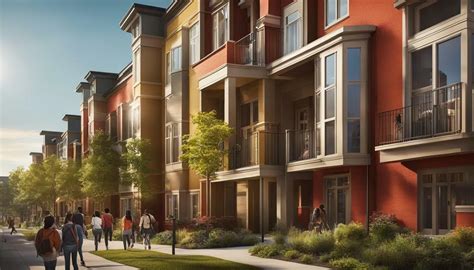Princeton University, one of the world’s most prestigious academic institutions, attracts students from around the globe. However, securing on-campus housing can be a competitive process. Many students turn to off-campus housing as a viable alternative. This guide provides a comprehensive overview of Princeton’s off-campus housing market, empowering students with the knowledge to find their ideal living arrangements.

Housing Options and Availability
Princeton’s off-campus housing market offers a diverse range of options, including apartments, houses, and townhouses. According to the Princeton Campus Homelink Service, there are approximately 3,000 off-campus units available for rent. These units range from single-room studios to four-bedroom houses. Students can choose from furnished or unfurnished units, as well as units with various amenities such as parking, laundry facilities, and air conditioning.
Location and Neighborhoods
Off-campus housing near Princeton University is concentrated in several neighborhoods:
- Palmer Square: This charming neighborhood is just a short walk from campus and features a mix of apartments and houses.
- Witherspoon-Jackson: Located to the north of campus, this neighborhood offers a variety of historic homes and apartments.
- Harrison Street: Known for its tree-lined streets and Victorian homes, Harrison Street is a popular choice for families and students alike.
- Nassau Street: The heart of Princeton, Nassau Street is home to a variety of apartments, shops, and restaurants.
Rental Rates and Expenses
Rental rates in Princeton vary depending on the size, location, and amenities of the unit. According to the Princeton University Off-Campus Housing Guide, the average monthly rent for a one-bedroom apartment is approximately $1,500. Two-bedroom apartments typically rent for between $1,800 and $2,200, while three-bedroom apartments can cost upwards of $2,500 per month.
In addition to rent, students may also need to budget for utilities, such as electricity, gas, and water. Internet and cable services are typically not included in the rent.
Finding a Place to Rent
Several resources are available to help students find off-campus housing in Princeton.
- Princeton Campus Homelink Service: This university-run program provides listings of available apartments and houses for rent.
- Princeton University Off-Campus Housing Guide: This online guide includes a searchable database of off-campus housing options.
- Local real estate agents: Real estate agents can assist students with finding and securing rental properties.
Common Mistakes to Avoid
When searching for off-campus housing in Princeton, it is essential to avoid common mistakes such as:
- Signing a lease without reading it carefully. Make sure you understand all the terms of the lease before you sign it.
- Not budgeting for all expenses. Consider all costs associated with off-campus housing, including rent, utilities, and transportation.
- Ignoring the neighborhood. Visit the neighborhood where you are considering renting before you sign a lease.
- Not having a roommate agreement. If you are sharing an apartment with roommates, it is important to have a written agreement that outlines each person’s responsibilities.
Frequently Asked Questions
Q: How far in advance should I start looking for off-campus housing?
A: It is advisable to start looking for off-campus housing several months before the start of the academic year.
Q: What are the pros and cons of living on campus vs. off campus?
A: Living on campus offers convenience, amenities, and a sense of community. However, living off-campus provides more space, privacy, and flexibility.
Q: Can I sublet my on-campus housing?
A: Subletting on-campus housing is generally not allowed. However, students may be able to apply for an exception through the university’s housing office.
Q: What are some tips for finding affordable off-campus housing?
A: Consider sharing an apartment with roommates, living in a less popular neighborhood, or renting a room in a house.
Conclusion
Finding off-campus housing in Princeton can be a challenging but rewarding experience. By carefully considering the options available, budgeting accordingly, and avoiding common mistakes, students can secure the ideal living arrangements to support their academic and personal goals.
